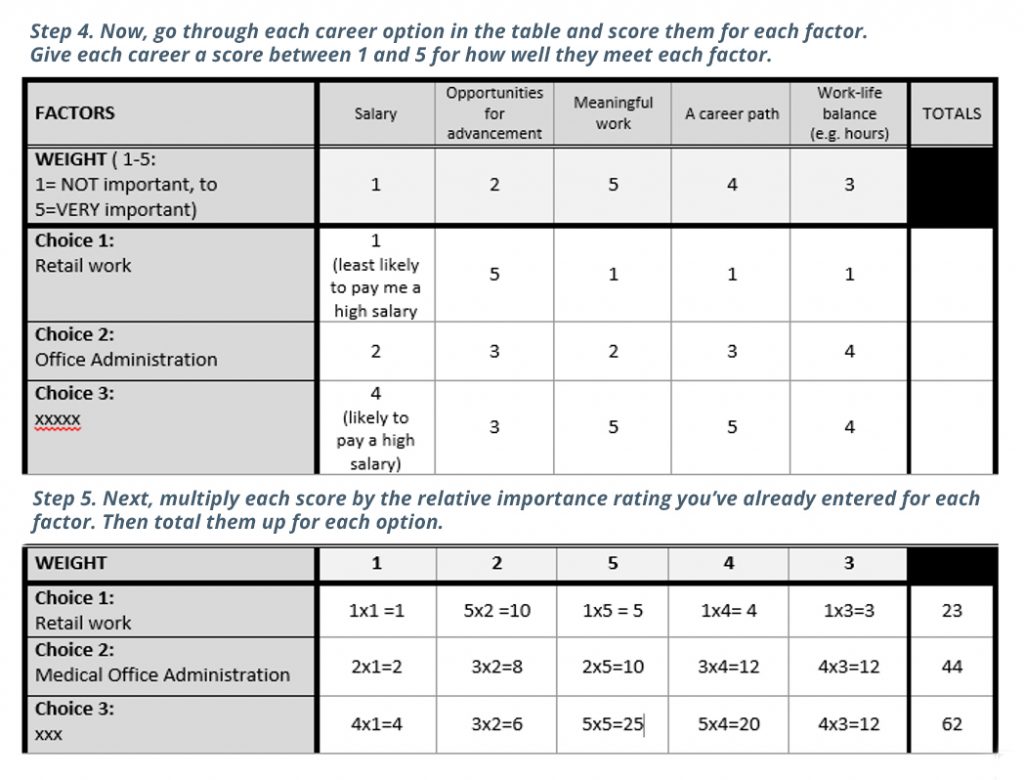Making a career decision is never easy. It’s a complicated process and there is no shortage of (often contradictory) advice. As job seekers, we are often told to “follow your passion” or “do what you love and the money will follow.” We hear these types of sentiments from celebrities, motivational speakers or in graduation speeches. It may sound simple and even inspirational, but following your passion is much more complicated than it sounds.
In his podcast series WorkLife, Organizational Psychologist Adam Grant explains the challenges faced when trying to follow your passion. In the episode “The Perils of Following Your Career Passion”, Grant suggests that following your passion might be some of the worst advice that you will ever get.
“The reality is that many people don’t know what they love to do—and even if you do, most passions don’t translate neatly into careers… For many people around the world, passion at work is a luxury, while income is a necessity.” He adds “Most of the time, our early passions are not the best guide to our later careers.”
For our employment specialists who work with both students looking for their career paths and adults who may want to change careers, these challenges sound very familiar.
Here are some of the challenges that make finding your passion so difficult:
1. You may not know what you are passionate about.
Angela Duckworth, author of Grit: The Power of Passion and Perseverance, compares career decisions to choosing a life partner and suggests that decision makers need to “date” to try out different career options. “Career passion is rarely love at first sight…. When you’re considering career paths, you shouldn’t cling to your old ideas of what your passion is. Don’t pursue the job that your past self thought would make you happiest. Follow your curiosity into the job where you think you’ll learn the most, where you can gain mastery over useful skills, and build your passion over time.” In simple terms, keep an open mind.
2. You may have more than one passion.
Research shows that the search for a calling can be uncomfortable and confusing. People often get too focused on only one passion which can result in narrow tunnel vision where the decision maker fails to consider multiple interests or passions. Urging people to find their passion may lead them to put all their eggs in one career basket.
There also is evidence that being too focused on following a single passion means people are unprepared for challenges, more easily frustrated, and likely to give up when facing difficulties on the job; often assuming that since challenges exist, this must not be the right career path for them.
3. Passions evolve over time.
Passion isn’t something that is just waiting to be discovered — it’s something that takes time to figure out and develop. Grant says, “Passion is a consequence of effort,” pointing to studies following the career paths of entrepreneurs over time. Their passions became stronger the more time and effort they invested into their start-ups.
“Their passion grew as they made progress,” noted Grant. “So, the problem is, the advice to ‘follow your passion’ reflects a fixed mindset: it assumes that your interests are stable. So if you don’t immediately enjoy a field or a task, the writing is on the wall; this must not be your passion, but that’s a mistake. You don’t want to quit the moment you don’t like a job, because passion can grow over time.”
4. Career paths, like passions, require exploration.
In previous generations, workers seemed able to map out their careers early on and pursue a linear employment path. That isn’t true for the new economy. In fact, according to Workopolis, only 30 per cent of people stay in any one job for over four years. Job hopping is the new normal. In today’s job market, careers are much more fluid and workers are have to be flexible when responding to a fast-changing economy.
So instead of the old straight forward “plan-and-implement” strategy, it may be more effective to consider a “test-and-learn” approach. Think of yourself as a scientist running experiments on your career; you have a hypothesis that a job might be a good opportunity and you try it out to see if it’s a good fit.
5. You won’t always love everything about your work.
Expecting to love every aspect of your work can set you up for disappointment. You may be left wondering whether there’s something better out there which will leave you with dissatisfaction and, ultimately, regret. Chasing happiness can chase it away.
Grant points out that when you start a job at the bottom of the career ladder, you will be disappointed if you think it is going to be all fun — “most entry-level jobs aren’t designed to be fun.” If you start your career with realistic expectations, you are more likely to push through the more challenging aspects of your job and eventually move into more satisfying roles.
6. Sometimes it just isn’t realistic to expect to fulfill your passions at work.
Not everyone is going to find personal fulfillment at work. Many people have other callings—passions they pursue outside their careers. Some are perfectly content to follow their passions through volunteer work, side businesses or as hobbies in their leisure time.
“So when you’re thinking about your career,” advises Grant, “the best place to start is not to follow your passion.” Follow your curiosity into a job where you think you’ll learn the most, gain useful skills, and then build your passion over time.
Quoting some useful advice from Oprah Winfrey “Your job is not always going to fulfill you… and the number one lesson I could offer you where your work is concerned is this; Become so skilled, so vigilant, so flat-out fantastic at what you do that your talent cannot be dismissed.”
7. Consider some expert advice.
Career exploration services, such at those offered at JVS Toronto, can help you build a clear picture of what will make you feel happy and fulfilled in your career by identifying jobs that align with your interests, skills, personality and values.
Whether you’re still in school or already working, it’s never too late to put yourself on the path to a career you love.
To know if you could benefit from Career Exploration, contact us at 416-649-1600 or pave@jvstoronto.org.




